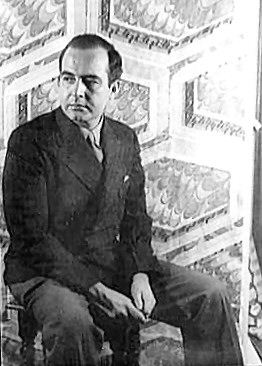
Temptation,
after Chagall’s Temptation (1912)
My God, you know, how temptation sits
in the belly of the world, red fruit, round,
already bitten.
You know it is not all that matters. Small, hooved creatures,
tiny birds, Eve’s several glances, and the canopies
of red and blue leaves matter as well.
The real fall will be to believe in Pablo.
Apollinaire will love you, your round house and the herring brine
on your father's hands.
Bella loves you, even as you grieve for the Shtetl, for the pale Christ.
I understand, my brother, the desire to pare a body
into something that will serve beauty.
You understand, my brother, how the world
revolves around the edges of the world.
Let the others eat their fill of square pears on triangular tables,
suckle at the circles and the cones.
I want to eat, together, whatever we’ve been given.
The moon behind the garden will be green and will disappear quite soon.
I want, as well, to thank you for this: I woke today
and was surprised, like you, to see that I am still alive.
A couple of notes on process in regards to this poem.
1) Earlier this summer, I read Jonathan Wilson's biography of Marc Chagall. Wording of some lines, as well as some of the context of 1912 in Chagall's world have likely been stolen from this good work.

2) Apollinaire wrote these lines for Chagall: "your round house where a smoked herring swims in circles . . . a man in the sky / a calf peers out of his mother's belly" (See Wilson, p. 51).
3) "Let the others eat..." is an adaptation and extension of Chagall's own comment about Cubism: "Let them eat their fill of square pears and triangular tables." He also announced, later, that as Europe was going to war he thought: "Picasso, Cubism is done for!" Picasso often said disdainful things about Chagall, though the two were able to have a semblance of companionship at points in their lives.





